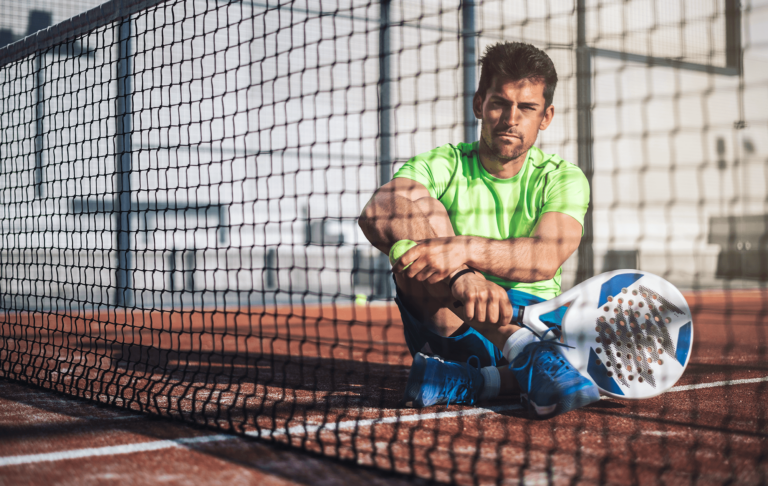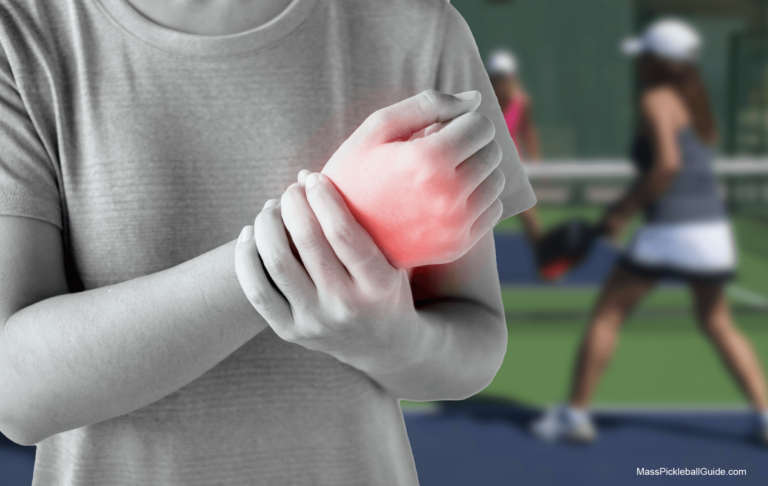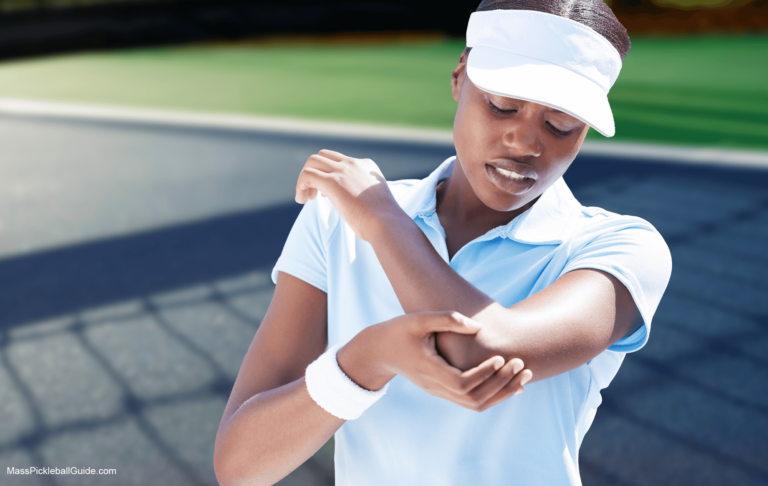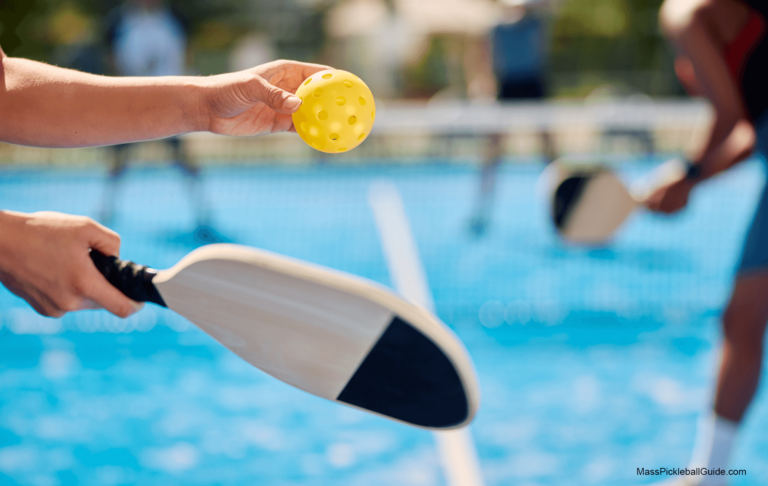How Technology is Revolutionizing Pickleball
around the corner…
As we witness ongoing advancements in technology, its significant influence on the game of pickleball is undeniable.
The introduction of AI line-calling systems promises to eradicate human error, minimizing disputes and fostering a smoother game experience. The emergence of intelligent paddles, offering immediate feedback on various aspects such as shot speed, spin, and accuracy, empowers players to elevate their game. Perhaps the most imminent: video replay technology provides an avenue for players to challenge calls, ensuring a higher level of fairness and integrity in the sport.
Key Takeaways
| Technology | Impact on Pickleball Rules |
|---|---|
| AI Line Calling | Eliminates human error in line calls and reduces disputes. |
| Smart Paddles | Provides real-time data on shot speed, spin, and accuracy. |
| Video Replay | Allows players to challenge calls and review points. |
As pickleball continues to gain popularity, advancements in technology are poised to have a significant impact on the rules and regulations of pickleball – even more so in 2024! In this article, we will explore how technology is expected to shape the future of pickleball rules. Some may seem far fetched but are actually in the works – no one likes surprises.
See more here: A New Pickleball Quiet Category – Solution or More Hype?
Part 1: AI Line Calling
One of the most significant technological advancements in pickleball is AI (artificial intelligence) line calling. Traditionally, line calls in pickleball have been made by human referees or players. However, with the advent of AI technology, line calls can now be made with greater accuracy and efficiency.
It gets better…
AI line calling systems use computer vision algorithms to track the trajectory of the ball and determine whether it has landed in or out of bounds. These systems are equipped with high-speed cameras that capture multiple angles of the court, allowing for precise line call decisions. By eliminating human error in line calls, AI technology reduces disputes between players and ensures fair play.
Part 2: Smart Paddles
Another area where technology is expected to impact pickleball rules is through the use of smart paddles. Smart paddles are equipped with sensors that collect data on shot speed, spin, and accuracy. This real-time data can provide players with valuable insights into their performance and help them make adjustments to their game.
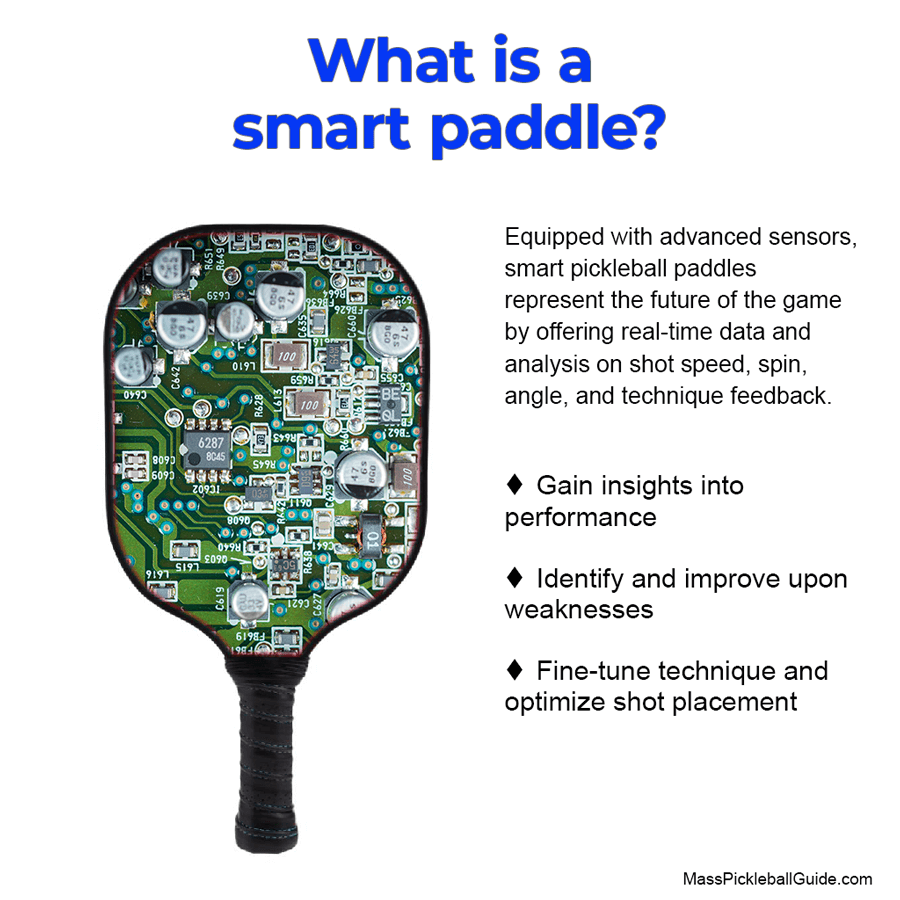
For example, a smart paddle can measure the speed of a player’s serve and provide feedback on how to improve power and accuracy. Additionally, sensors in the paddle can detect the amount of spin applied to the ball, allowing players to better control their shots. As technology continues to advance, smart paddles may become a standard tool for competitive pickleball players.
Part 3: Video Replay
The advent of video replay technology has marked a transformative era in numerous sports, enhancing the accuracy and fairness of competitions – slows it down too! This allows players and officials to scrutinize specific plays or decisions by reviewing footage, ensuring the veracity of calls. In pickleball, the application of video replay technology serves as a pivotal tool for challenging calls made by referees or players.
Integrating video replay into the official rules of pickleball offers players a valuable opportunity to contest close calls and reassess points that might have been erroneously awarded or withdrawn. This not only instills an extra layer of fairness to each match but also significantly contributes to upholding the integrity of competitive play. In a game where every point counts, the capability to review actions can be a game-changer, fostering trust and a sense of justice among the players and audience alike.
Video replay can aid in the continual refinement of officiating standards, providing clear and accessible examples of plays for referees to study and learn from. The meticulous verification of calls via video replay in pickleball aligns with the sport’s commitment to progress and fairness, ensuring that the true spirit of competition remains untarnished.
Conclusion
As technology continues to advance, it is inevitable that it will have a profound impact on the rules and regulations of pickleball. AI line calling systems will eliminate human error in line calls and reduce disputes between players. Smart paddles will provide real-time data on shot speed, spin, and accuracy, allowing players to improve their performance. Video replay technology will allow players to challenge calls and review points for increased fairness.
While these advancements may change the way pickleball is played, they ultimately aim to enhance the overall experience for players and maintain the integrity of the game.

